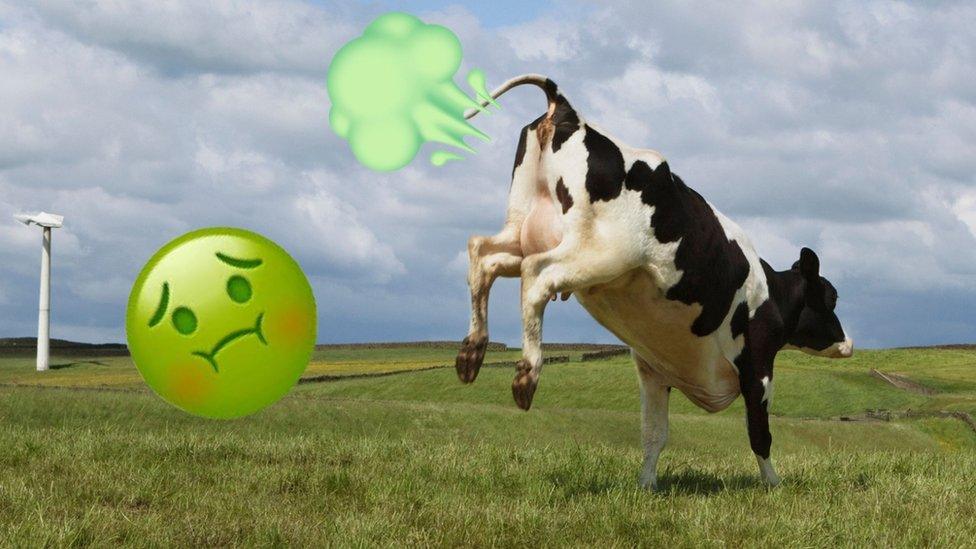Antarctica: Seaweed discovery could help tackle global warming
- Published
- comments
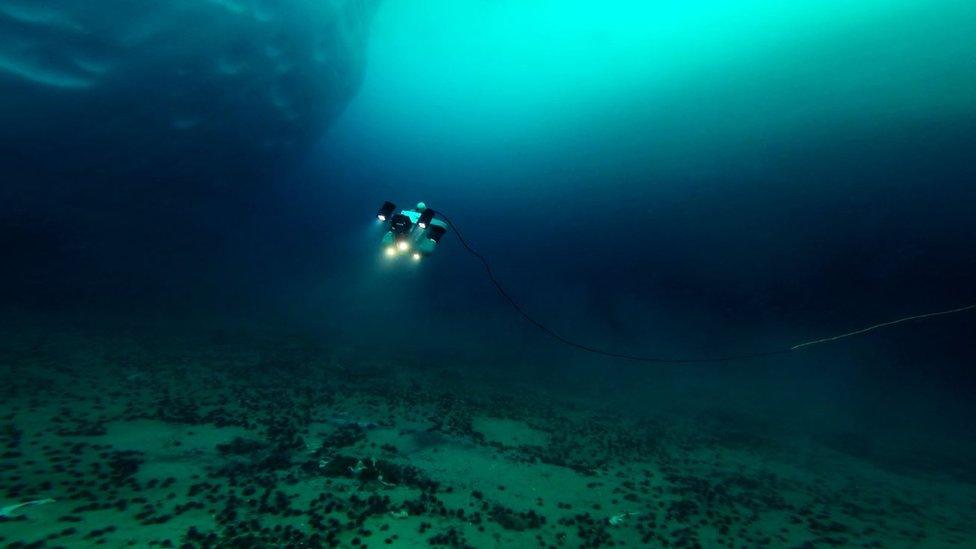
A remotely-operated vehicle (ROV) made the discovery deep beneath the surface
Seaweed has been discovered in Antarctica 100 metres beneath the surface.
The seaweed was found by a research team using a remotely-operated vehicle (ROV) from a boat off the south-western Antarctic peninsula.
Samples have been collected for further examination.
Seaweed is known to store carbon (CO2) so finding it here is an exciting discovery as it reveals more about Antarctica and the role it could play in tackling climate change.
Seaweeds have the potential to play a huge role in protecting the environment by storing carbon at the bottom of oceans when they die and reducing ocean acidification.
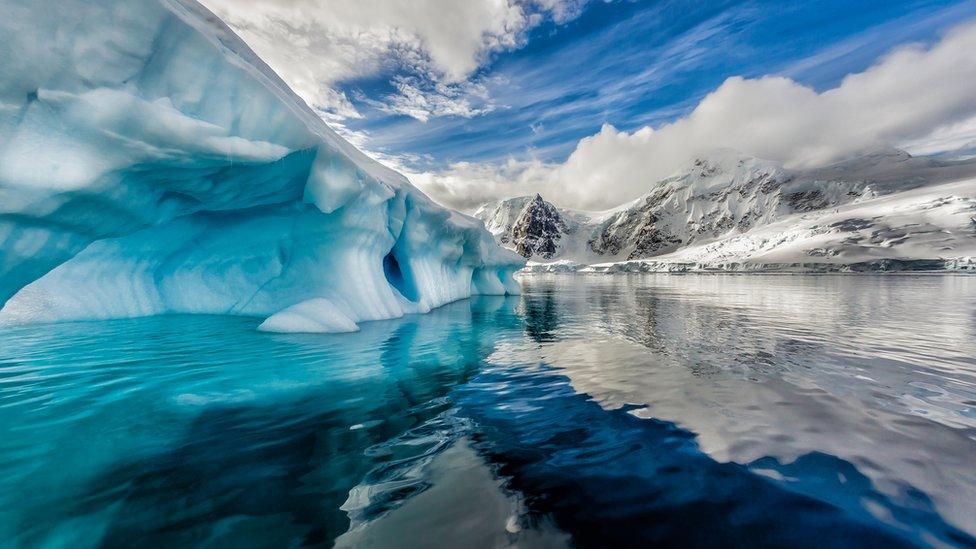
Fun fact: During the summer in Antarctica, the sun never sets, so it's light all the time
The type of seaweed that was discovered is called Palmaria decipiens.
It is a species of red algae, well adapted to the Antarctic environment, where there are permanent low water temperatures.
But finding it attached to the sea floor, at a depth of 100m, is new to science and experts are hoping it may live even deeper.
It is good news because seaweeds play a "huge role" in protecting the environment, as Professor Frithjof Kuepper, from the University of Aberdeen, explains:
"We know that carbon capture will be crucial to limiting global warming as we move forward, and seaweeds sequester (hide away) large amounts of CO2."
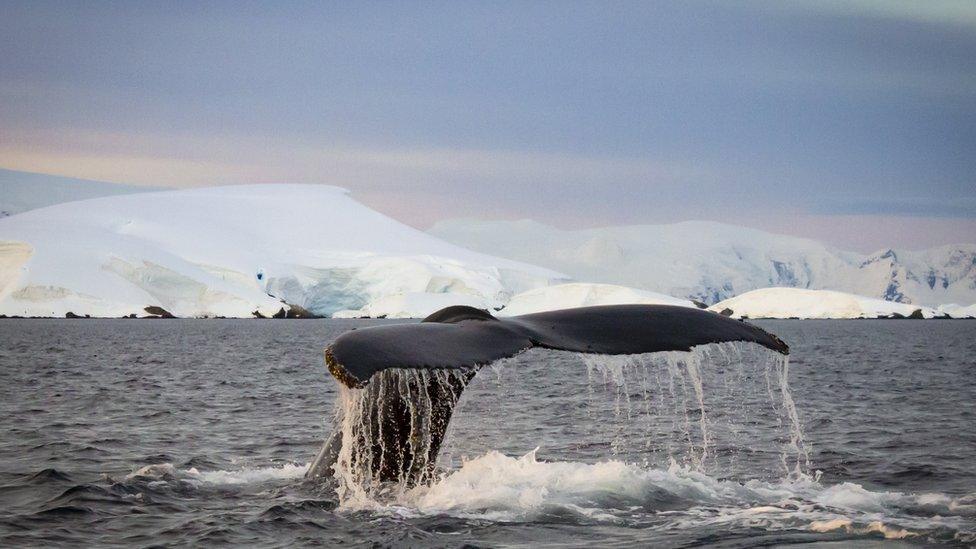
Antarctica is home to Blue Whales, Fin Whales, Humpback Whales, Killer Whales, Minke Whales, Right Whales, Sei Whales, and Sperm Whales
Seaweed also plays a huge role in marine ecosystems and provides food and protection for animals and fish.
So knowing it lives this deep means it is almost certainly playing some role in providing habitats for creatures to live in, as well as absorbing and storing carbon dioxide in the deep.
"Antarctica... is so important to understand for addressing the environmental challenges the world faces today," added Prof Kuepper.
- Published6 February 2023
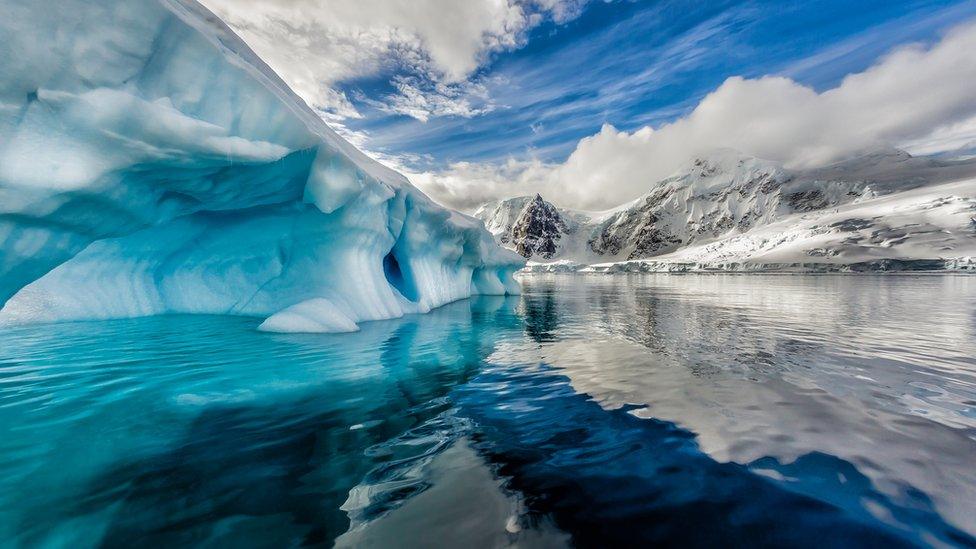
- Published28 July 2020
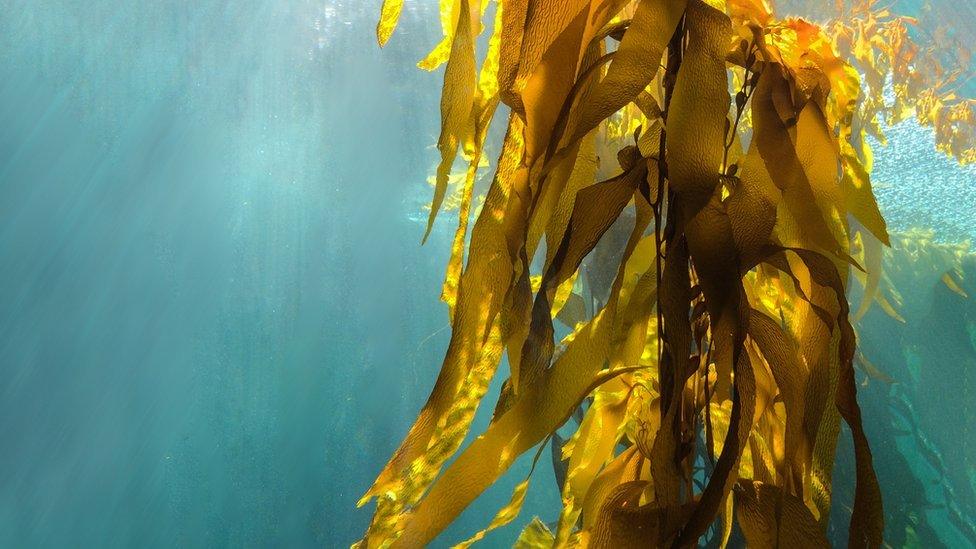
- Published18 March 2021
